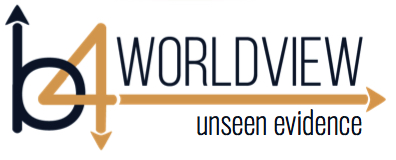
Key Thought for this session:
“Without a compass, the journey is futile.”
At this point in this course, not only do we see that identifying our own core assumptions can be helpful in making better life decisions, but it is also evident to us that when we can identify the core assumptions of another person, it gives us a significant advantage in communicating and working effectively with them. This is because it gives insights into why they come to different conclusions than you might when exposed to the same observations.
Let’s do a little review and then ask some questions to help you better develop this ability to identify the core assumptions of ourselves as well as those of others.
As you remember, a person’s core assumption about truth will either be that it is relative or absolute. A person also has a core assumption about how they prefer to obtain truth. Specifically, they either prefer to obtain truth by inferring it from personal observations, or by the disclosure from the originator or an authority who they trust to speak for the originator. Given these two core assumptions, we can place all people in one of four categories shown by the following chart.
By basing the axes of this chart on the following core assumptions (2 Core Assumptions: TRUTH is either Relative or Absolute; and TRUST comes from personal observations or the disclosure from originator) we see that we create four different categories.
These categories are described as follows:
Category #1: People who most TRUST personal observations & see truth as relative
• These people want to have physical evidence to base their beliefs on
• And they believe that truth is based on each individual’s perception of what is true.
Category #2: People who most TRUST personal observations & see truth as absolute
• These people want to have physical evidence to base their beliefs on
• And they believe there exits absolute truth that transcends what some people may tell them is true.
Category #3: People who most TRUST the disclosure of the originator & see truth as relative
• For these people, the evidence they would prefer to rely on is that which is disclosed by the originator
• And they believe that truth is based on each individual’s perception of what is true.
Category #4: People who most TRUST the disclosure of the originator & see truth as absolute
• For these people, the evidence they would prefer to rely on is that which is disclosed by the originator
• And they believe there exits absolute truth that transcends what some people may tell them is true.
After you’ve had a chance to study these categories, I want to ask you some questions about how you can apply this knowledge in determining the worldviews of others you talk with.